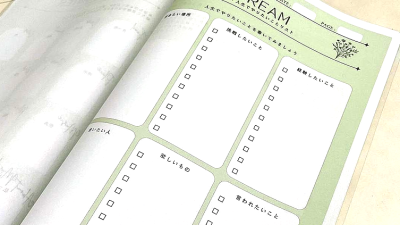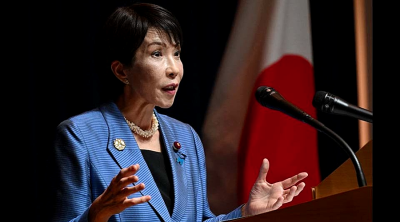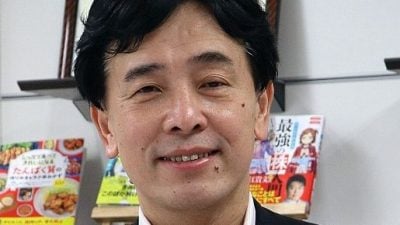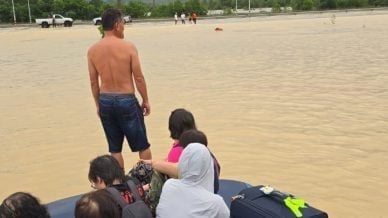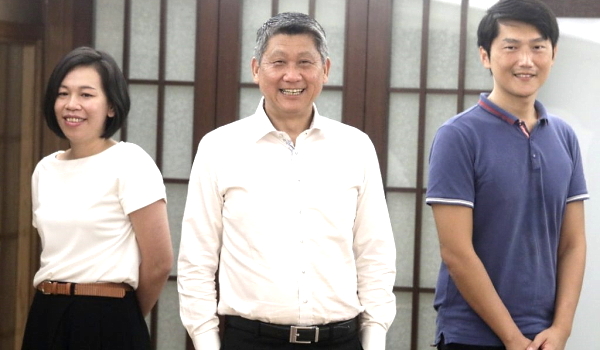
This year marks the 40th anniversary of Malaysia’s Look East Policy. More than tens of thousands of Malaysians have furthered their studies in Japan over the decades, including those sent by JPA and Japanese scholarship recipients, although the majority have traveled to Japan on their own expenses.
Apple Vacations founder Datuk Seri Lee Ee Hoe, better known as Lee San, was among the earliest to respond to the government’s Look East Policy in 1991 to further his studies in the Land of the Rising Sun at a “not so young” age of 26.
Before going to Japan, he worked as a tour guide, a profession that provided him an opportunity to meet up with fellow tour guides returning from Japan, who told him he should “go to Japan and take a look”.
So he made up his mind to go to Japan to study and work part-time.
Lam Ching Fu, still a high school student in late 1990s, was lured to Japan because of the popular TV dramas Long Vacation and Beach Boys.
When he was in Form 6, he successfully applied for a Japanese government scholarship after learning about it from the newspaper, and traveled to Japan in 2002.
But, not everyone has longed to study in Japan because of the influence of the Japanese culture.
Kok Sau Yee, currently working at Cancer Research Malaysia, admitted that she had never thought of studying in Japan, and went there only when there was a Japanese professor looking for postgraduate students in cancer studies back in 2016.
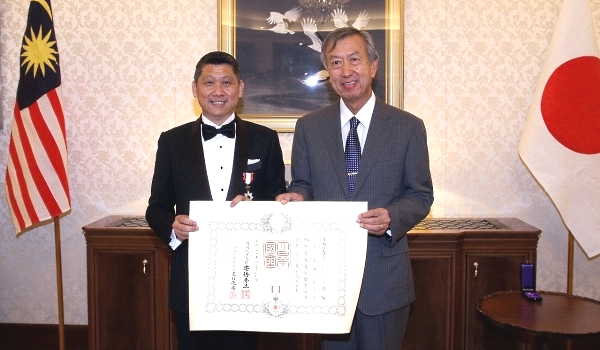
Overcoming language barrier
To Lee San, who went to Japan in the 1990s, taking up two or even three part-time jobs during summer vacation was a norm for many foreign students. In the event any fellow Malaysian student was unable to pay his or her tuition fees, the other Malaysian students would help raise the fees for him or her.
To him and many other people, language had always been a major concern in arriving at the decision of studying in Japan, but this was not that difficult to overcome.
In the first week after arriving in Japan, Lee, who knew very little about the Japanese language initially, took up a part-time job at a local Chinese restaurant washing dishes.
His lady boss taught him some Japanese children’s songs and very soon he could sing the songs pretty well.
It took him only three months to learn some basic conversational Japanese from scratch, and another seven months to get admitted to Tokyo International University’s School of Economics.
Equipped with only very rudimentary Japanese, Lam Ching Fu said there was nothing to be afraid of, as he was still young at that time.
In his first year in Japan, Lam first attended a language school. He even took up a part-time job at an izakaya (Japanese bar) although he had a scholarship, so that he could pick up some popular Japanese slang he wouldn’t have learned from textbooks and gained a better understanding of the local society.
Unlike the other two men, Kok Sau Yee went to Japan to pursue a doctorate program where all research reports had to be written in English and where learning of Japanese was not mandatory.
So she actually didn’t need to learn the language although she still did out of interest.
She recalled that when she first arrived in Kanazawa in 2016, life could be tough not knowing Japanese. But thanks to various translation apps that began to emerge in the market, coupled with the growing internationalization trend in the city that made English increasingly popular in recent years, Japanese proficiency was no longer a major obstacle just before she came back to Malaysia last year.
As a matter of fact, more and more Japanese universities have introduced all-English programs in recent years, but not in the 1990s!
Lee San said there were almost no courses taught in English offered by colleges in Japan when he was there, not even the elite schools, adding that English as medium of instruction only became more commonplace when competition in recruiting international postgraduate students became stiff in more recent years.
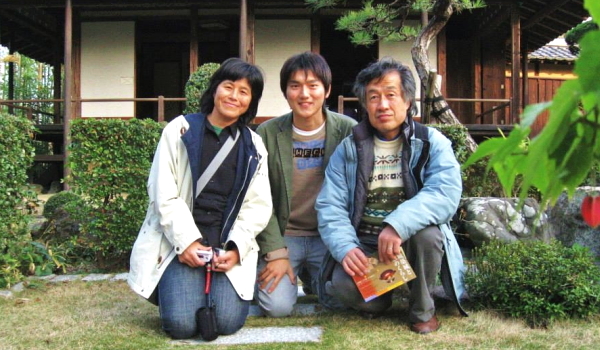
Multiple jobs and host families
Back in the 1990s, Lee said students on government scholarships and own expenses were like living in two very different worlds, the former wouldn’t normally take up part-time jobs as their scholarships had taken care of not just their tuition fees but also living expenses and return air fare.
By comparison, those not on scholarships had to raise their own funds for school fees and living expenses, and were therefore always busy working, often taking up multiple jobs during the summer vacation.
Reassuringly, Malaysian students in those years were ready to help their compatriots by raising funds to help settle a fellow Malaysian’s tuition fees, for instance.
As for Lam Ching Fu, taking care of junior students from Malaysia became a responsibility. Senior students would typically bring their juniors around, for example to a sakura hanami picnic in the April orientation month.
Meanwhile, the Japanese people are also very nice to foreign students.
Although Lam, who was on government scholarship, was staying at a school hostel, he and other foreign students were assigned custodians (or host families as they called it) who would take them around to familiarize them with the Japanese culture. They could also consult their custodians if they happened to come across any problem.
Kok Sau Yee, meanwhile, received a lot of help from her teacher.
“He helped me settle many things in life. I could go straight to him whenever I had a question.
“There was this time I had an allergic reaction from a bee sting, and he took me to see a doctor.”
Her professor, who had lived overseas before, knew it was not easy to be a student in a foreign land and hence took very good care of international students at his school.
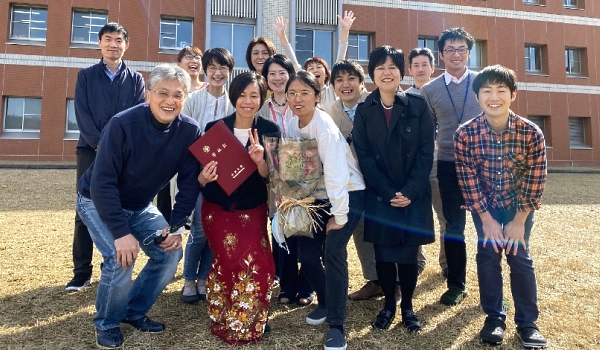
Commitment to punctuality
Lee San went back to the travel industry upon his return from Japan in 1996. Noting a stagnancy in the Japan outbound sector here, he started his own agency with some partners and focused on his familiar Japan, starting new itineraries such as lavender sighting tours to Hokkaido. And his relationship with Japan continued to grow with time.
After spending five years in Japan, Lam Ching Fu came back and took part in Malaysia’s MRT project, implementing the Japanese punctuality, accountability and dedication at his workplace.
Unfortunately he later learned that such workplace attributes did not actually work in Malaysia and he made up his mind to leave after one year.
He then started traveling around the country and put his travel experiences in a book My Journey by Bus, which, weirdly, features many empty pages.
Actually the book has been paginated in the format of a Japanese thesis. From the style of pagination and typesetting, we can see that he not only upholds Japanese work attitude but is also deeply influenced by Japanese aesthetics.
Kok is also very much impressed by the Japanese people’s commitment to punctuality.
While she saw herself as among the most hardworking workers in Malaysia, she said she would be the laziest if in Japan.
Kok, who was doing a cancer biology course in Japan, said the advantage of doing researches in Japan was the availability of an exceptional support system. The professors, research assistants and students would work seamlessly as a team, unlike in Malaysia where it is common for a person to multitask, hence lower efficiency.
Lam encourages young Malaysians to study in Japan and not to worry about language barrier, as there are a lot of convenient translation apps available nowadays, while there are indeed plenty of things we can learn in Japan.
Meanwhile, Lee San always tells the parents in his tour groups to send their children to Japan if they don’t have a clue where to send them to.
“Japan will help you train your children to be good people.”
He said almost nine out of ten young foreign students he met in Japan were very kind people, adding that they would benefit tremendously if they were to put in practice what they have learned from the Japanese society, such as punctuality, self-discipline and the Isshōkenmei (lifetime devotion) attitude.
ADVERTISEMENT
ADVERTISEMENT








